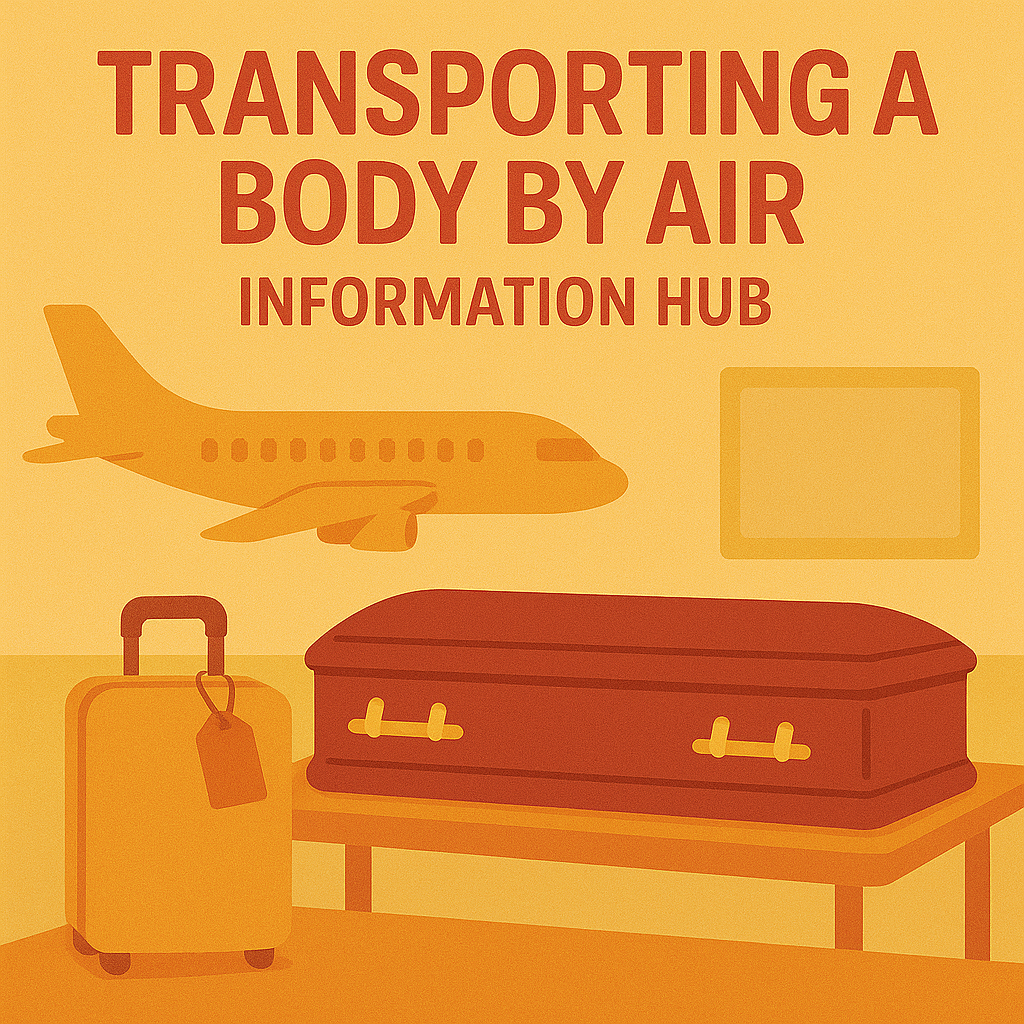Not your average carry-on.
The Transporting A Body By Air After Death Information Hub
Transporting a body by air after death is one of those things no one thinks about until they have to. Whether someone dies far from home or wants to be buried in another country, navigating airline policies, paperwork, and logistics can feel overwhelming during an already difficult time. This hub walks you through the process so you understand what is required, who to contact, and how to bring your loved one home with care and dignity. It is a rarely discussed part of final arrangements, but one that matters deeply.

Key Things To Know
Before you start making calls or booking flights, there are a few important facts to understand about transporting a body by air. Some are required by law, others by airline policy, and not all of them are intuitive. You do not have to use a broker, though many people choose to for convenience or because a funeral home recommends it. If you're hands-on and comfortable with paperwork, you can coordinate air transport yourself.
- Most airlines require the body to be shipped as cargo, not luggage. You’ll work with the airline’s cargo department, not passenger services. Some airlines have specific "human remains" desks or hotlines.
- Embalming or refrigeration is usually required. Especially for long-distance or international flights, embalming is standard. Some countries will not allow entry without it.
- You must use an approved container. This is typically a hermetically sealed casket or a casket inside an outer shipping container. The funeral home or mortuary transport service can help you meet airline and TSA requirements.
- Airlines only work with licensed funeral homes or mortuary services. So even if you’re not using a broker, you’ll need to involve a licensed provider to handle the preparation and documentation.
- Every airline has its own rules and paperwork. Don’t assume what works for one will work for another. Start with a call to the cargo department of the airline you plan to use.
- You’ll need specific documents. These typically include the death certificate, a burial transit permit, and sometimes an embalming certificate or letter of non-contagious disease.
- Flights may not be immediate. Cargo availability, weather, and paperwork processing can delay transport. Plan accordingly if you’re coordinating funeral or memorial services on the other end.
Frequently Asked Questions
When it comes to transporting a body by air, even the most organized families run into unfamiliar territory. Here are answers to some of the most common questions we hear, from logistics to legal requirements to what happens once the plane lands.
Disclaimer: The information provided on this website and by Buried in Work is for general informational purposes only and should not be considered legal advice. Please consult with a qualified attorney or subject matter expert for advice specific to your situation.
